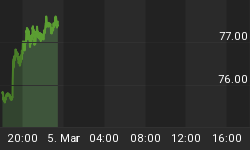On April 21, Treasury Secretary Timothy Geithner said the "vast majority" of U.S. banks have more capital than needed.
"Currently, the vast majority of banks have more capital than they need to be considered well capitalized by their regulators," Geithner said in testimony to a congressional oversight panel on the government's financial rescue program.
Geithner's remarks come on the heels of a surge in reported quarterly profits by the big banks.
One of these banks, Bank of America (BAC), the world's second largest in terms of market capitalization, booked a first-quarter net income of $4.247 billion - 6% more than it made in all of 2008.
So is this the turnaround Geithner et al. have been willing to beggar our nation's future for?
Before calling your broker and placing a big order for bank stocks based on all this "good" news, it might be prudent to answer a couple questions first.
For starters, just where did all this income come from? And has credit quality really improved?
The answers to both can be found buried in a company press release bearing the encouraging title "Bank of America Earns $4.2 Billion in First Quarter."
I'd like to draw your attention to the four most telling excerpts from this release.
-
"Equity investment income includes a $1.9 billion pretax gain on the sale of China Construction Bank (CCB) shares."
-
"Noninterest income included $2.2 billion in gains related to mark-to-market adjustments on certain Merrill Lynch structured notes as a result of credit spreads widening."
-
"Credit quality deteriorated further across all lines of business as housing prices continued to fall and the economic environment weakened."
-
Nonperforming assets were $25.7 billion compared with $18.2 billion at December 31, 2008 and $7.8 billion at March 31, 2008, reflecting the continued deterioration in portfolios tied to housing."
Now we see that out of its $4.2 billion in profits, a total of $4.1 billion came from a one-time sale of CCB stock and marking up Merrill's book of mortgages. If you subtract these one-time gains from net income and include preferred dividends, Bank of America actually lost $1.286 billion.
As far as credit quality goes, I think number 3 above makes the situation as clear as can be.
Importantly, Bank of America is not the only big bank engaged in accounting sleight of hand.
As The New York Times article "Bank Profits Appear Out of Thin Air" by Andrew Ross Sorkin points out:
With Goldman Sachs, the disappearing month of December didn't quite disappear (it changed its reporting calendar, effectively erasing the impact of a $1.5 billion loss that month); JP Morgan Chase reported a dazzling profit partly because the price of its bonds dropped (theoretically, they could retire them and buy them back at a cheaper price; that's sort of like saying you're richer because the value of your home has dropped); Citigroup pulled the same trick.
So what's the takeaway?
When the Treasury secretary tells you banks are well capitalized and you read in the press that financial institutions have turned a corner, don't buy it. And don't buy the stocks of these companies either.
These days, smart investors are well advised to carefully watch the investment as well as the political landscape... because Washington's movers and shakers' influence on the markets has never been greater. The Casey Report investigates and analyzes those influences and trends - to find the best investing opportunities with maximum gains. You can try it completely risk-free - check out our 3-month trial with 100% money-back guarantee. Click here to learn more.















